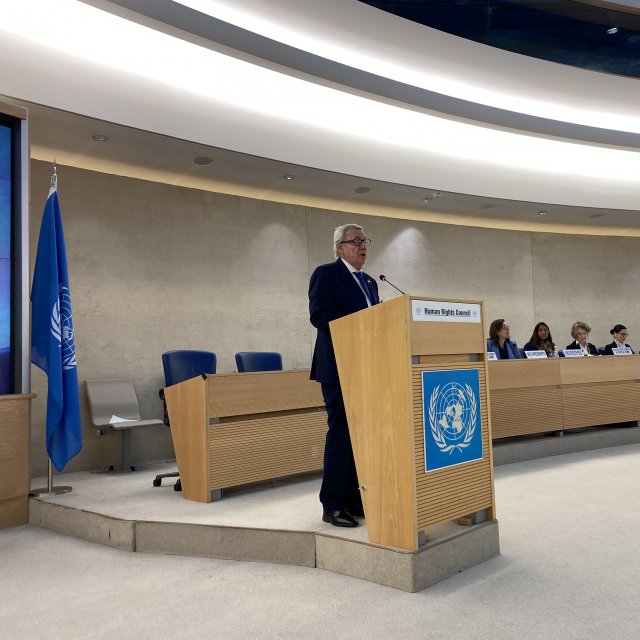 Thursday, February 27th 2025
Undersecretary meets with the Minister of Oceans and Fisheries of the Republic of Korea
Thursday, February 27th 2025
Undersecretary meets with the Minister of Oceans and Fisheries of the Republic of Korea
Chancellor Ampuero will visit the river Silala

The Minister of Foreign Affairs, Roberto Ampuero, will travel next Monday January 28 to the Region of Antofagasta, to make a visit to the river Silala. This is a few days before the deadline - set by the International Court of Justice for February 15 - for Chile to submit its replica within the framework of the lawsuit filed by our country on the status and use of these waters.
The Chancellor will be accompanied by the Agent of the lawsuit of Chile before Bolivia for the use of the waters of the river Silala before the International Court of Justice, Ximena Fuentes. The delegation will also include the coagent of the case, Juan Ignacio Piña and the executive coordinator of the lawsuit, Johanna Klein.
The objective of the visit is to review in the field the scientific evidence that forms a central part of the position that Chile will present before the International Court of Justice. Therefore, the delegation that will travel to Silala will also include DICTUC engineer Francisco Suárez and Sernageomin geologist Edmundo Polanco.
In the run-up to the trip, Foreign Minister Ampuero said that "the Chilean team has done an excellent job of gathering scientific evidence to strengthen our country's position. All the data collected in the field give only one conclusion: the Silala River crosses the border due to the natural slope of the terrain, without the intervention of third parties, passing through a creek that has existed for more than 8,400 years".
"Thus it has been recorded, for example, in the map of the Treaty of 1904, signed by Bolivia and Chile. The map clearly shows the Silala River crossing the border," the Minister added.
According to the timetable set by the Hague Court, after Chile's submission of the reply, Bolivia will have three months to submit its rejoinder.
The Silala trial began on June 6, 2016, with a lawsuit filed by Chile. In that lawsuit, the Court is asked to declare that the Silala River is an international watercourse, that Chile has the right to equitable and reasonable use of the waters and that it also has the right to the use it currently makes of the waters of the Silala River.
Related articles
 Thursday, February 27th 2025
Undersecretary meets with the Minister of Oceans and Fisheries of the Republic of Korea
Thursday, February 27th 2025
Undersecretary meets with the Minister of Oceans and Fisheries of the Republic of Korea
 Monday, February 24th 2025
Minister van Klaveren reaffirms Chile's commitment to human rights and gender equality
Monday, February 24th 2025
Minister van Klaveren reaffirms Chile's commitment to human rights and gender equality









